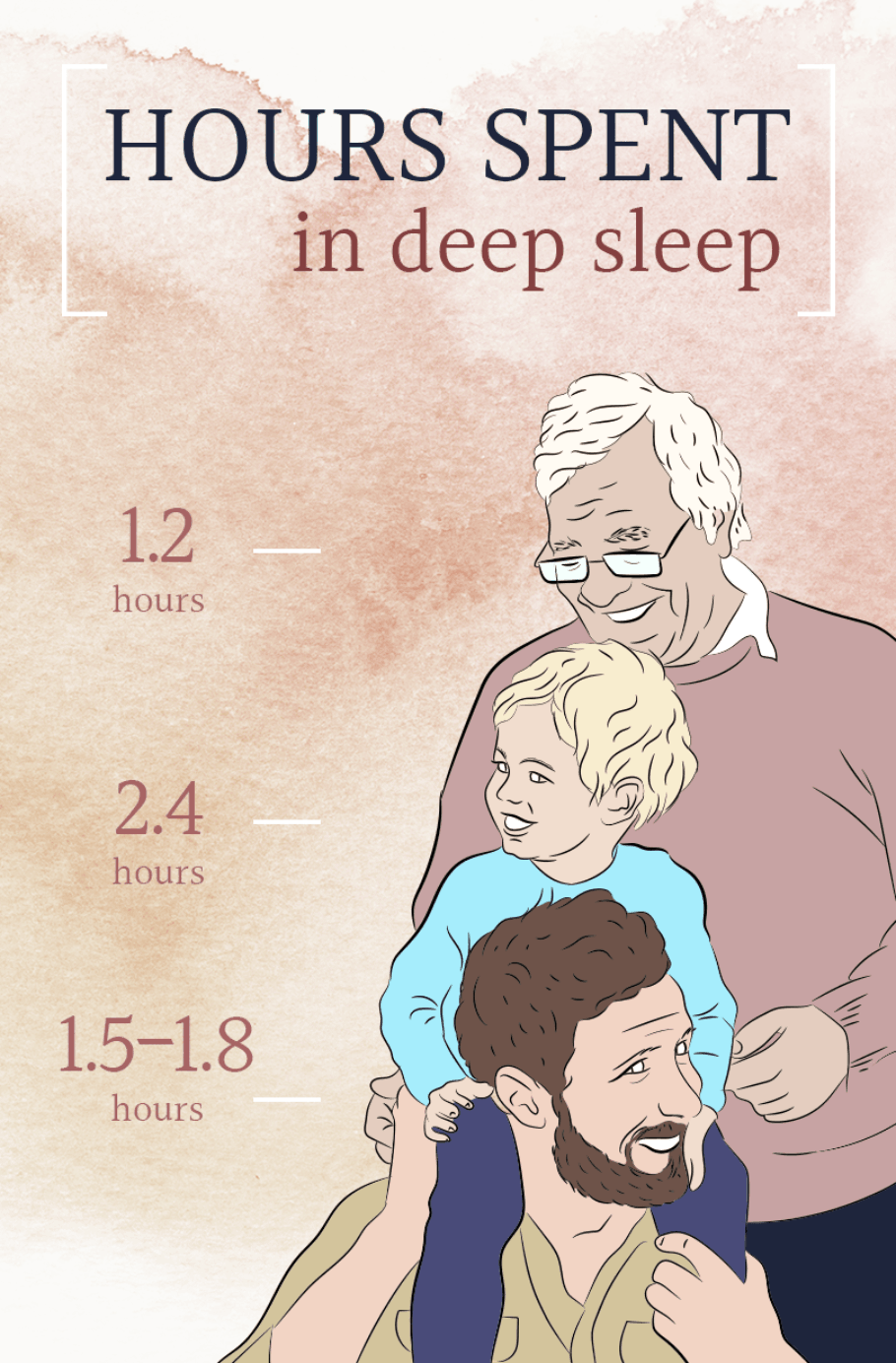How Much Deep Sleep Do We Need?
22nd January 2020
Slumber Centre
It’s common for people to describe themselves as light or deep sleepers; light usually meaning that the person wakes up easily during the night, while deep sleepers claim to be able to sleep through almost anything.
But, in truth, we all experience stages of light, deep and REM sleep during the night. While all these stages are important, deep sleep is when our bodies perform many of its vital functions to recover from the previous day and prepare for the next. People who have more high-quality deep sleep also tend to report feeling more well rested. But how much deep sleep do we need?
What is deep sleep?
Deep sleep is also known as the third and fourth stage of sleep or delta sleep, when our brain waves slow down, our muscles relax and our heart rate and breathing slow down.
Deep sleep is when the body repairs itself, releases growth hormones and strengthens the immune system. The body is busy during this time but the brain is largely inactive, as shown by the slowed brain waves.
We don’t dream during deep sleep (this happens in the REM stage) and we’re less responsive to outside stimuli, which is why it’s much harder to wake up during deep sleep.
If we are woken up, we’re likely to feel groggy and disoriented for several minutes while the brain catches up.
How much deep sleep do we need?
So now we know why we need it, but how many hours of deep sleep is enough?
Even though a lot of important bodily functions happen in deep sleep, we don’t spend the largest portion of time in this stage. We only spend around 15-25% of our night in deep sleep; light sleep takes up 50-60% and 20-25% is spent in REM sleep.
The average hours of deep sleep we need varies by age. The average adult over 18 needs 7-9 hours of sleep per night, with around 1.5-1.8 hours spent in deep sleep according to the New Health Advisor, but this differs slightly for younger people.
Babies and young children spend more hours in deep sleep phases in order to have time to release the growth hormones needed for healthy development. New-borns will spend as much as 2.4-3.6 hours a night in deep sleep, decreasing over time as they get older.
The 15-25% proportion remains largely the same (children mainly get more hours of deep sleep because they sleep longer overall), however, there is a shift in proportion from deep sleep to light sleep during adolescence.
It is estimated that time spent in deep sleep decreases at a rate of around 2% per decade between the ages of 20 and 60.
Some people need more deep sleep than others to wake up feeling fully refreshed, and ultimately there is no such thing as too much deep sleep! So if you feel like cancelling your alarm and getting a bit of extra rest, go right ahead – your body is probably telling you what it needs.
Older people may experience less deep sleep, but this isn’t because they don’t need it; it’s more likely to be due to being woken by aches and pains, or struggles to settle into sleep as quickly when they go to bed.

What happens when we don’t get enough deep sleep?
As mentioned, the deep sleep stage is all about looking after the body. Lack of deep sleep is most impactful in early years, when growth hormones are needed the most, but lack of deep sleep can also have negative effects on health in adults.
During deep sleep, the body replaces cells, heals wounds, and builds muscle tissues, as well as strengthening the immune system.
So if you don’t get enough, you’re likely to feel more run down and pick up illness or infection more easily. For those with chronic illness deep sleep is even more vital to repair damage and replace tissue.
Struggling to wake up in the mornings or feeling groggy for prolonged periods of time after you get up could also be signs that you’re not getting enough deep sleep. You may also be more cranky during the day, or find yourself feeling more emotional due to being low on energy,
How to get more deep sleep
If you’re not getting enough deep sleep, there are several things you can try to improve it.
A good place to start is finding out more about your sleep; there is a range of apps that can help you track your sleep, or you can use a Fitbit. Tracking your sleep will help you see how many hours you’re currently spending in each stage, and how many times you wake up in the night. Some tools will even give you a score so you can gauge how well you’ve slept.
Stress is a key psychological cause of unsettled sleep, so do all you can to relax before bed. Pick up a book, take a warm bath or try some meditation to calm your mind. While strenuous workouts before bed are not recommended, some light yoga or stretching could help you unwind.
There are also general habits that can help you to get more deep sleep. Avoid caffeine before bed, get regular exercise, and try to establish a sleep routine where you go to bed at a similar time every night. Make an effort to switch off screens at least an hour before bed, or use a tool to reduce the blue light glare from your devices if necessary.
